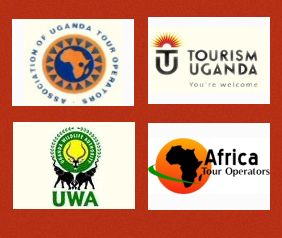TOGETHER LETS GO WILD AGAINST ILLEGAL WILDLIFE TRADE.
Animal species, which include; elephants, rhinos and primates, great apes such as chimpanzees and gorillas are some of the most targeted species in this illicit wildlife trade which are the leading gorilla safaris, chimpanzee tracking safaris and so on
Uganda joins the rest of the world to celebrate the World environment day which is celebrated on June 5, every year. This year’s theme is, “Go Wild for Life”, a theme encouraging all people around the world to join the #zero tolerance for the illegal wildlife trade trend.
Animal species, which include; elephants, rhinos and primates, great apes such as chimpanzees and gorillas are some of the most targeted species in this illicit wildlife trade. This is resulting into these species extinction due to being killed by poachers for their valuables which are then traded across Africa and sold on international black markets like in China, Japan and Vietnam.
The elephants and rhinos are poached for their products of ivory or tusks and horns respectively. Ivory is used to manufacture electrical appliances, buttons, Scottish bagpipes, miniature statues, piano and organ keys, billiard balls, handles and carvings. Rhino horns and primate meat are thought to be medicinal and that they can cure illness like cancer. Also in the case of apes, the issue is trade in babies for the pet trade. In order to obtain one ape baby, a whole family is wiped out before the baby can be taken. According to UNEP, 170 tonnes of ivory was estimated to be illegally exported out of Africa between 2009 and 2014. Also, according to the International Union for Conservation of Nature, 3,000 great apes (Gorillas and Chimpanzees) and 1,338 rhinos are being lost from the world each year. Even though all sales of especially primates, ivory and rhino horns are banned to date (2016) by the United Nations’ Convention on International Trade in Endangered Species (CITES), poaching and illegal trade of these wildlife animals is on the rise. The illegal trade rise is on the grounds that the beneficiaries from this trade are attaining a great deal of profits on the black market. Poachers have a short-sighted approach and they are only in it for themselves and do not care, if these species become extinct. Price examples of wild animals or their valuables on the black market include: (i) According to Miguel Llanos of NBC News.com, Emmanuel de Merode, a warden of Congo’s Virunga National Park said that the selling price for infant gorillas can run from about $15,000 ( sh50,021,400 ) to $40,000 (sh133,390,000). (ii) A pound of rhino horns costs about $60,000(sh200,086,000) and “it is more valuable by weight than gold, diamonds or cocaine,” as according to William Ripple, an Oregon State University professor of ecology as reported by Jennifer Harper – in The Washington Times. In Uganda and Africa at large, these wildlife animals, which are being killed or smuggled out are amongst the major attractions that bring in tourists from overseas to visit them whether in the zoos, national parks or sanctuaries. In 2014, Uganda tourism sector’s contribution to the economy was sh5.6 trillion (7.9% of GDP) in 2013 and rose to sh6.4 trillion (9.9% of GDP). Additionally, the same sector contributed 592,500 jobs up from 551,100 in 2013 and is expected to rise by 3.9% pa to 921,000 jobs in 2025 (8.9% of total). According to Dr. Jane Goodall’s quotes, each one of us has a role to play towards zero tolerance for the illegal wildlife trade in our country. One of the roles you as an individual can play is to report any person you suspect engaging him or herself in Illegal wildlife trade in your community to enforcement authorities like Uganda Wildlife Authority (UWA). Additionally, continuing to encouraging sustainable livelihood options for communities than exclusive reliance on natural resources or forests for survival. Since this is also a factor leading to these endangered species extinction. Fellow Ugandans, it is not too late to #Go Wild for Life”. Conservation organisations have and are still preaching the gospel of peaceful co-existence with wildlife but most of you have kept a deaf ear. According to National Environment Management Authority (NEMA), 95% of Ugandans are environmentally aware but only 16% are responsive. This negative attitude towards conservation issues has to change.

